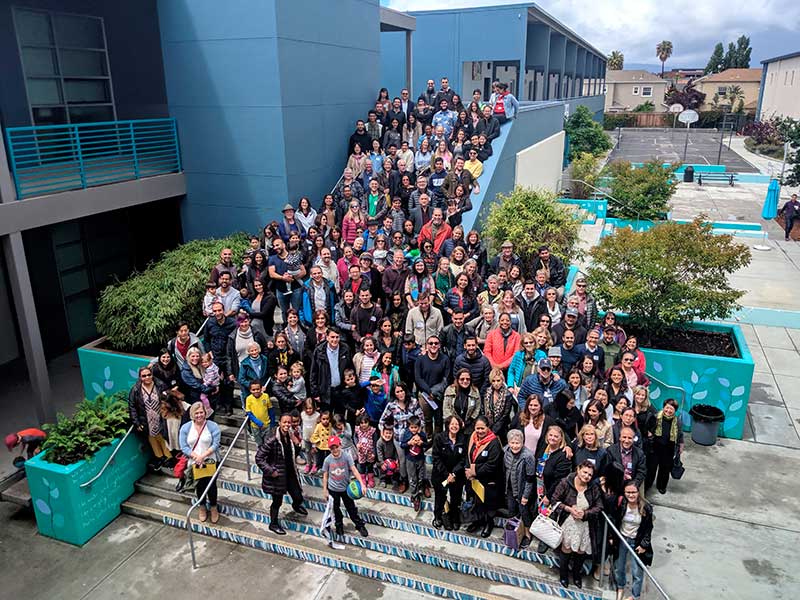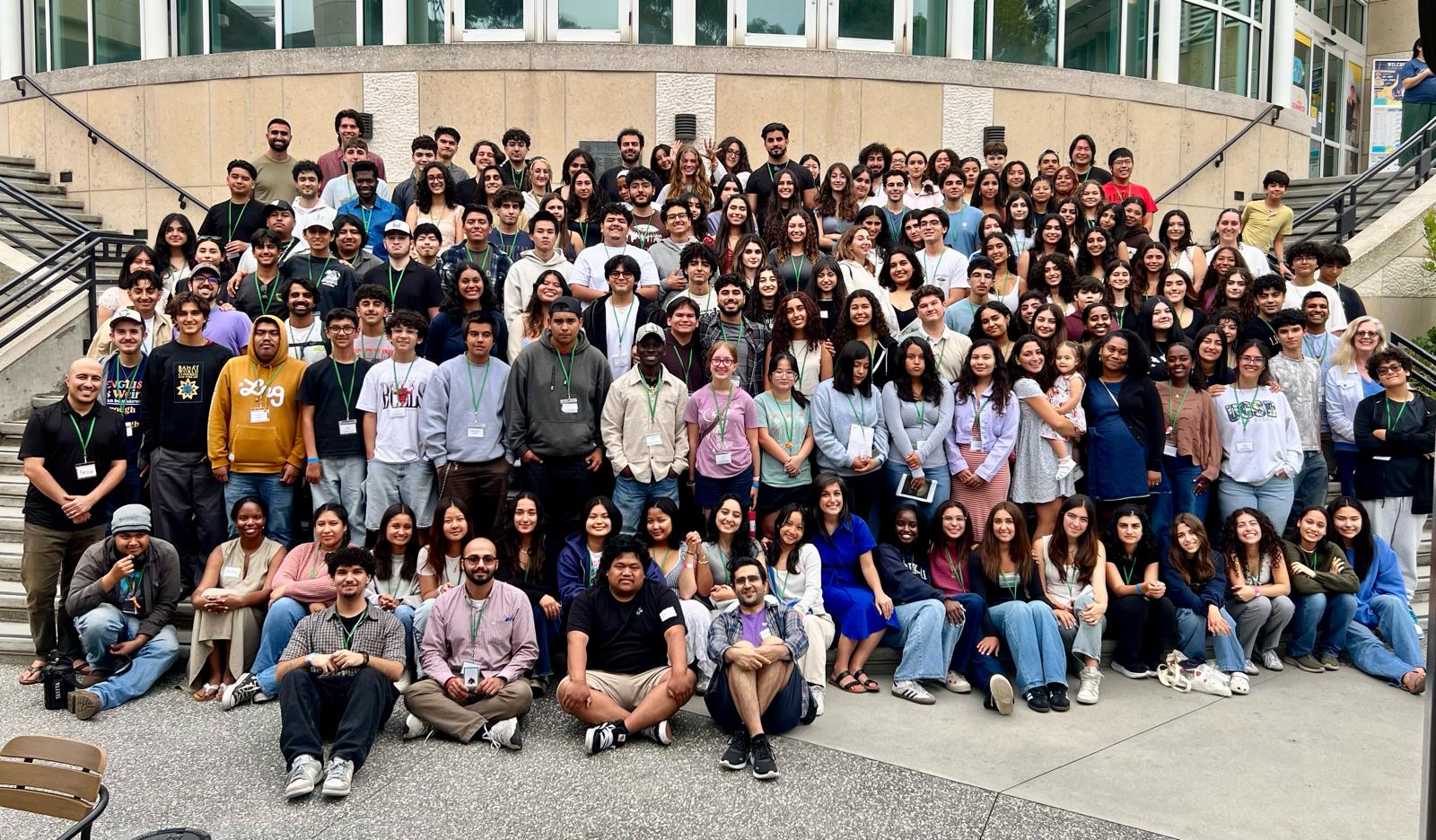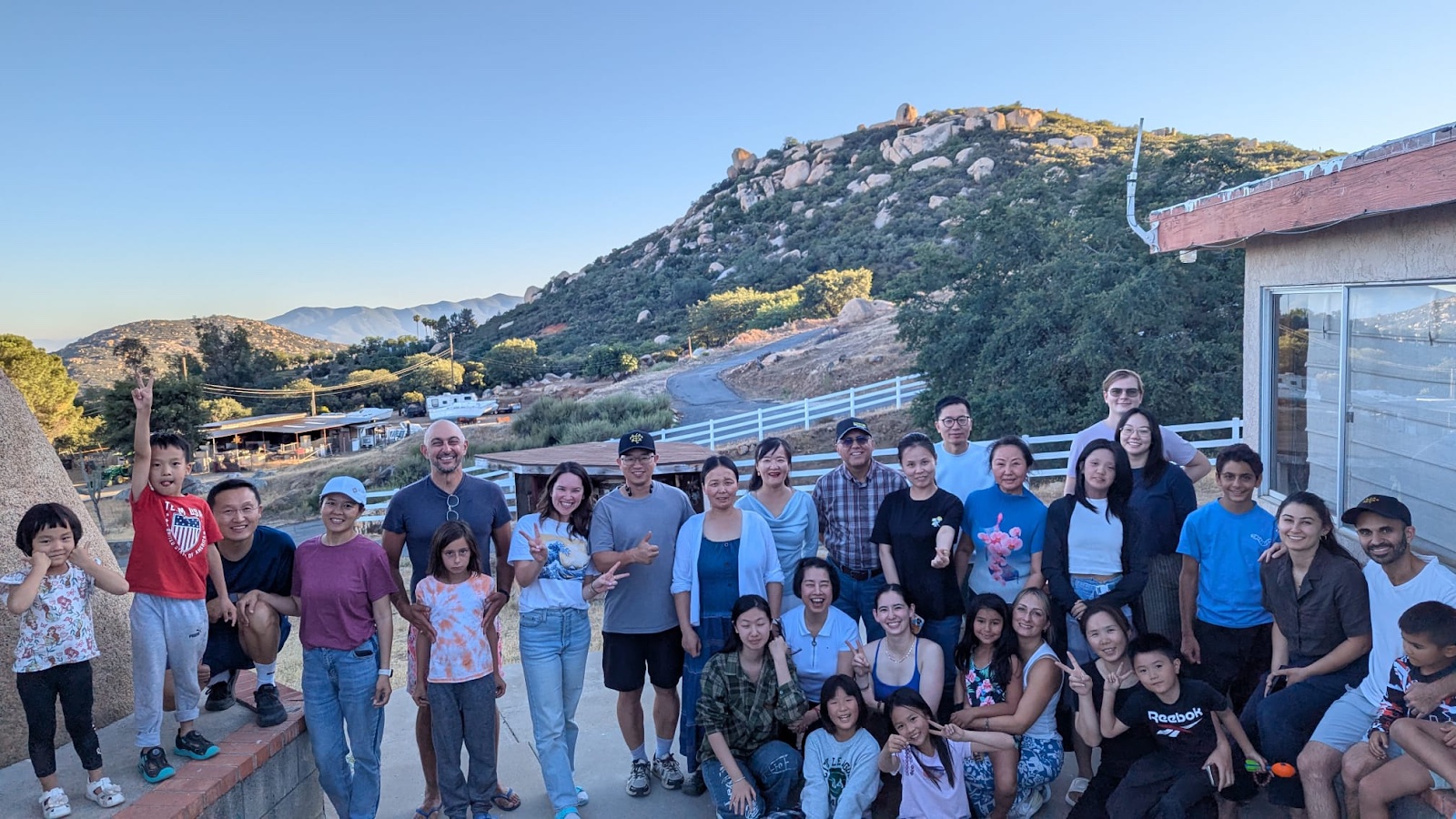
Learning about Community Life in Flint, Michigan
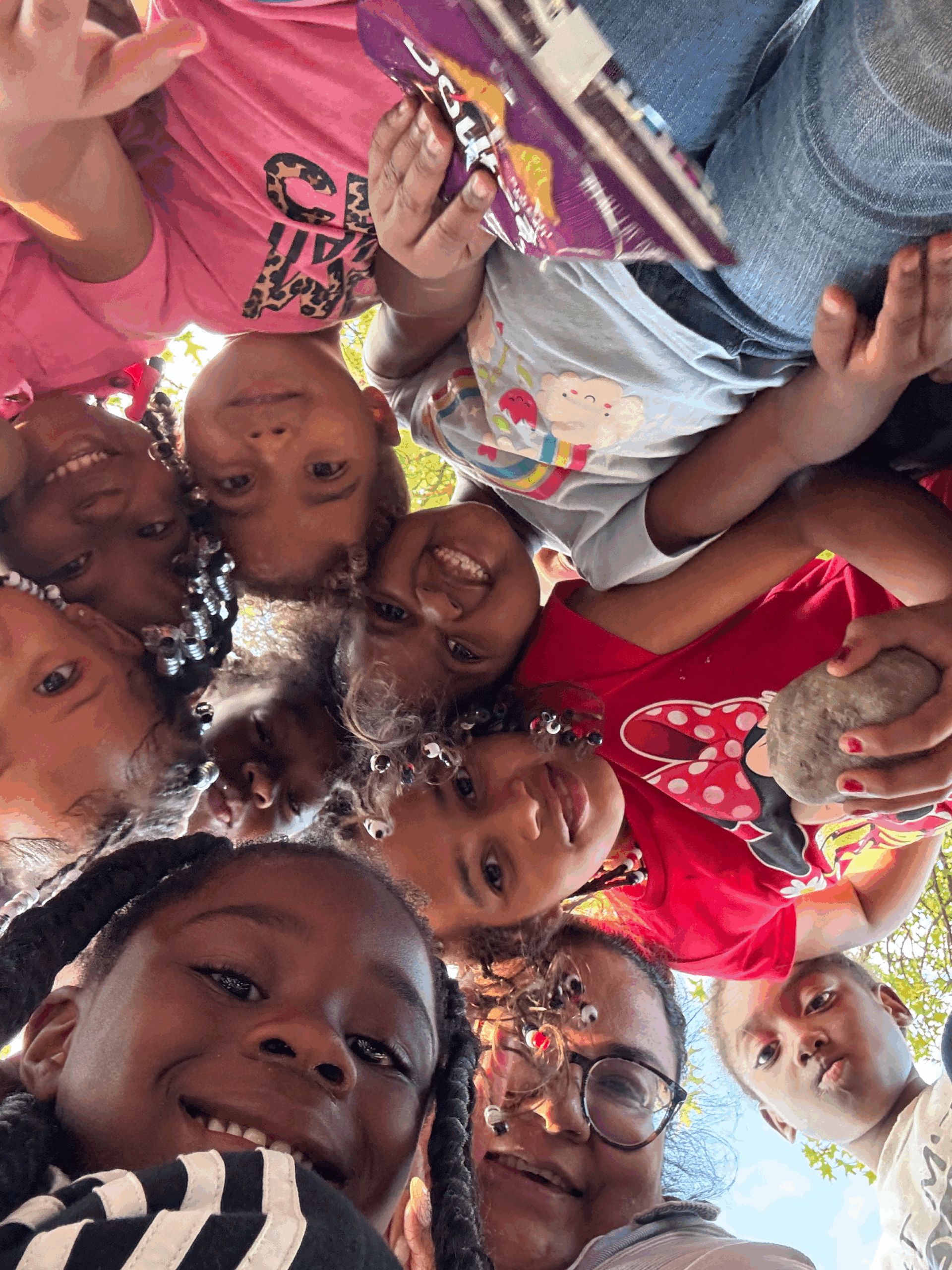
Flint has a hopeful story to tell, one of a community’s resilience and vision—and Bahá’í programs that nurture spiritual life are playing a role. Altogether, over 200 families are involved in Bahá’í children’s classes, junior youth groups, study circles, and devotional gatherings. Currently, these activities engage around 30 children, 95 junior youth (between the ages of 11 and 15), and more than 40 youth, many of whom are taking ownership of their local community-building process.
A decade ago, only a handful of Bahá’ís lived in Flint. Today, there are 21, half of whom recently declared their faith in Bahá’u’lláh, having joined the community after participating in core activities.
The community’s participation in the Institute process began about a decade ago, with one family’s initiative of inviting neighbors to devotional gatherings. Since then, there have been various efforts involving a few Bahá’ís in Flint, as well as families who moved in and later left the area. The spiritual energies generated through these efforts contributed to much of the growth taking place today.
“In many ways, Flint misses out on a lot materially, but that doesn’t define the people. The people here are spiritually rich,” says Fita Halaholo, a Baha’i who has moved to serve the community-building process as a, Fita Halaholo. “[People] already believe in God; there’s a deep connection. Young people feel a sense of responsibility to improve their lives and help younger generations see hope.”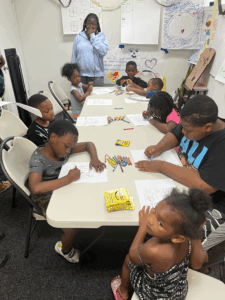
Halaholo began serving in Flint in 2016 with the Brecque family, who were longtime pioneers in the community. In 2019, she moved to Flint along with Mia Taufa, who was supporting junior youth camps each cycle.
Halaholo and Taufa’s approach was one that centered the pre-existing Flint community’s role in their own neighborhood’s spiritual and material well-being. The Auxiliary Board members and Regional Training Institute coordinator provided ample support through developing a pattern of study, consultation, action and reflection.
Flint’s economic challenges have led to well-meaning, albeit transient organizations entering the community with a promise of quick fixes that they often leave without fulfilling. The approach of the Institute, however, recognizes the importance of building trust over time and centering the native residents of a neighborhood.
Bahá’ís and their friends have thus formed genuine bonds of friendship with neighbors, centered on shared aspirations of justice, community life, and the empowerment of young people.
Flint is beginning to see generations of young people raised up by the Institute, now coordinating activities, sharing the Word of God with their family and friends in organic ways, and continuously exploring paths towards increased participation in the processes.
Simple acts, like talking with neighbors, have created community support for the junior youth program, which builds adolescents’ capacity to work toward a more just and harmonious world, explains Taufa. “Everyone agrees on the idea that the children and junior youth can contribute to something better than what their parents have experienced.”
Spiritual growth of young people
The Junior Youth Spiritual Empowerment Program helps adolescents and their mentors, known as animators, build discernment, resilience, kindness, and other spiritual qualities. In one illustration of how the program encourages growth, a conflict had arisen between two participants. One junior youth who struggled with literacy felt nervous about reading aloud. A fellow participant, confident in their own reading abilities, poked fun at their peer. Rather than avoiding the issue, the animator pulled aside the confident reader and had a loving conversation about striving to create stronger friendships.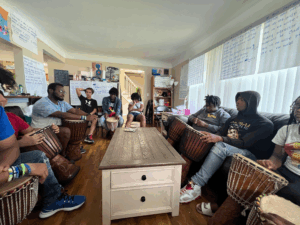
This incident illustrated the simultaneous learning of the animator and the junior youth. For the animator, they were “going through a transformation where they could strengthen their eloquent speech to speak with a kindly tongue with the friends they are accompanying… striving to be both frank and loving,” explains Halaholo. For the junior youth, they learned to think about how their words influence others.
Another story comes from a youth, Ja’Mel Thorns, who recounts, “In the beginning, I was a hot-headed junior youth. I would get into fights with anyone and everyone. But because of the process, I started calming down and thinking things through before reacting. My mom also noticed that I wasn’t getting angry as much.” A number of Thorns’s family members played a vital role in coordinating activities in their neighborhood and became Bahá’ís in 2019.
Additionally, Amiri Williams, a 20-year-old youth who serves as a tutor, animator and coordinator shares, “I take pride in my role because it greatly affected my life in a positive way and changed my perspective for the better. I love the people I serve with. We have a family structured bond.”
Fostering consultation over discipline
Exhibiting reverence during devotions can be challenging for spirited children and junior youth. With youth leading children’s classes and junior youth groups, they endeavored to help the younger participants learn reverence. Initially, they disciplined the participants into quieting down.
Yet, says Taufa, “What ended up happening, especially since they realized it’s a capacity building process, they had to raise themselves to a higher standard to articulate to their younger peers how to build this environment. We started to slowly see that each of the youth would take a turn in introducing the space, raising the purpose of prayers, why we close and open with prayers.” This more consultative approach has yielded more vibrant devotional gatherings.
“The Institute process feels like an adventure in finding yourself and helping others along the way during the path you’re walking,” says Aaliyah Veasey, who coordinates much of the children’s class program efforts in the neighborhood.
Serving humanity as a purpose in life
Finding meaning through serving others is fundamental to the core activities. These four foundational practices—devotional gatherings, study circles, children’s classes, and junior youth empowerment programs—form a pattern of community life. Ce’terra Williams shares how growing up participating in the community-building process shaped her life: “Prayer and service are simply part of my daily routine. The process has helped me grow closer to my siblings, develop a love for children, and strengthen my desire to see junior youth contribute to society’s transformation.”
A fellow youth coordinator, Brian Royster, shares his own experience: “Before I entered the process, I didn’t really have a purpose in life. I thought life was just about working and going home. But now it’s clear what my purpose is, and I love serving.”
Serving others also gave Jeffrey Hardin, another youth, a sense of deeper connection. In his words: “I feel like it gave me the foundation to start a real life. I would just sit at home, play video games, and talk to my friends, but now I serve and help others. I learned not to hold onto hatred, and that’s how we’re supposed to be…. ‘Make us as waves of the sea, as flowers of the garden, united, agreed through the bounties of Thy love.’”
During summer of 2025, efforts were focused on strengthening collaboration with families. The community welcomed its first large cohort of youth who were completing the first six books of the Ruhi series and beginning the seventh. The community also hosted its fifth summer of service and saw more junior youth graduate into the sequence of courses. After many years, some children’s class participants are transitioning into the junior youth program.
Much excitement and reliance on God lie ahead for these friends. As more souls draw nearer to the Faith, the Flint friends continue to walk the path of service, inviting all to join them on this spiritual enterprise.


